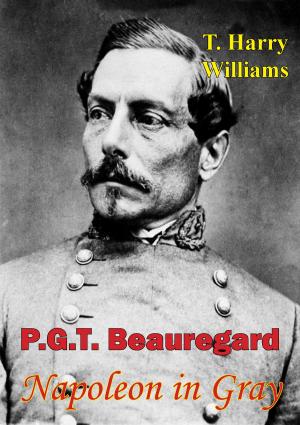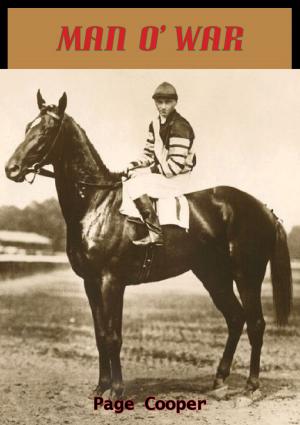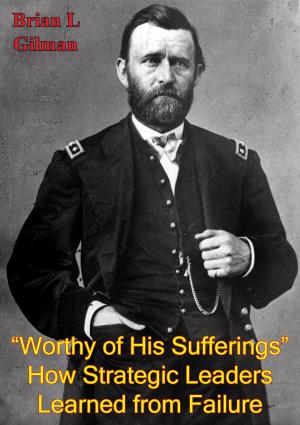Antietam And Gettysburg: Tactical Success In An Operational Void
Nonfiction, History, Modern, 19th Century, Americas, United States, Civil War Period (1850-1877), Military| Author: | Lt.-Cmdr Stephen P. Black USN | ISBN: | 9781782899280 |
| Publisher: | Golden Springs Publishing | Publication: | November 6, 2015 |
| Imprint: | Golden Springs Publishing | Language: | English |
| Author: | Lt.-Cmdr Stephen P. Black USN |
| ISBN: | 9781782899280 |
| Publisher: | Golden Springs Publishing |
| Publication: | November 6, 2015 |
| Imprint: | Golden Springs Publishing |
| Language: | English |
The Battles of Antietam and Gettysburg are widely recognized as tactical victories for the Union’s Army of the Potomac. Following both battles, however, the respective commanding generals. General McClellan and General Meade, were sharply criticized for having failed to vigorously pursue General Lee and his Army of Northern Virginia in order to deliver a decisive blow. Both Union commanders offered a list of extenuating circumstances, such as battle fatigue, large casualties and lack of supplies, which precluded a “premature” pursuit of General Lee.
Upon examination, however, their inability to conceptualize a decisive pursuit of General Lee’s army points to a direct failure at the operational level of War. Both Union generals were unable to link their tactical victories to any larger strategic objective. The reasons for this from the strategic confusion of a conflict evolving from limited War to total War, and from the void in operational training that left both McClellan and Meade ill prepared to perform successfully at this critical level of Warfare.
Examining this operational void, it becomes apparent that a commander’s construct of War must be complete, that is, fully cognizant of the strategic, operational and tactical levels of War, in order to achieve success beyond the limits of the tactical battlefield. Such an examination points to the criticality of the operational level of Warfare, highlights the importance of the commander’s concept of operations and suggests that an operational commander must grow in the sense that his cognitive processes must be tuned into the dynamics of his environment, not only on a tactical level, but on the operational and strategic level.
The Battles of Antietam and Gettysburg are widely recognized as tactical victories for the Union’s Army of the Potomac. Following both battles, however, the respective commanding generals. General McClellan and General Meade, were sharply criticized for having failed to vigorously pursue General Lee and his Army of Northern Virginia in order to deliver a decisive blow. Both Union commanders offered a list of extenuating circumstances, such as battle fatigue, large casualties and lack of supplies, which precluded a “premature” pursuit of General Lee.
Upon examination, however, their inability to conceptualize a decisive pursuit of General Lee’s army points to a direct failure at the operational level of War. Both Union generals were unable to link their tactical victories to any larger strategic objective. The reasons for this from the strategic confusion of a conflict evolving from limited War to total War, and from the void in operational training that left both McClellan and Meade ill prepared to perform successfully at this critical level of Warfare.
Examining this operational void, it becomes apparent that a commander’s construct of War must be complete, that is, fully cognizant of the strategic, operational and tactical levels of War, in order to achieve success beyond the limits of the tactical battlefield. Such an examination points to the criticality of the operational level of Warfare, highlights the importance of the commander’s concept of operations and suggests that an operational commander must grow in the sense that his cognitive processes must be tuned into the dynamics of his environment, not only on a tactical level, but on the operational and strategic level.

![Cover of the book Chancellorsville Staff Ride: Briefing Book [Illustrated Edition] by Lt.-Cmdr Stephen P. Black USN](https://www.kuoky.com/images/2014/august/300x300/9781782898566-OIcS_300x.jpg)

![Cover of the book The Battle of Gettysburg [Illustrated Edition] by Lt.-Cmdr Stephen P. Black USN](https://www.kuoky.com/images/2016/july/300x300/9781786259530-fW5O_300x.jpg)




![Cover of the book Advance And Retreat: Personal Experiences In The United States And Confederate States Armies [Illustrated Edition] by Lt.-Cmdr Stephen P. Black USN](https://www.kuoky.com/images/2015/november/300x300/9781786251411-oejF_300x.jpg)






